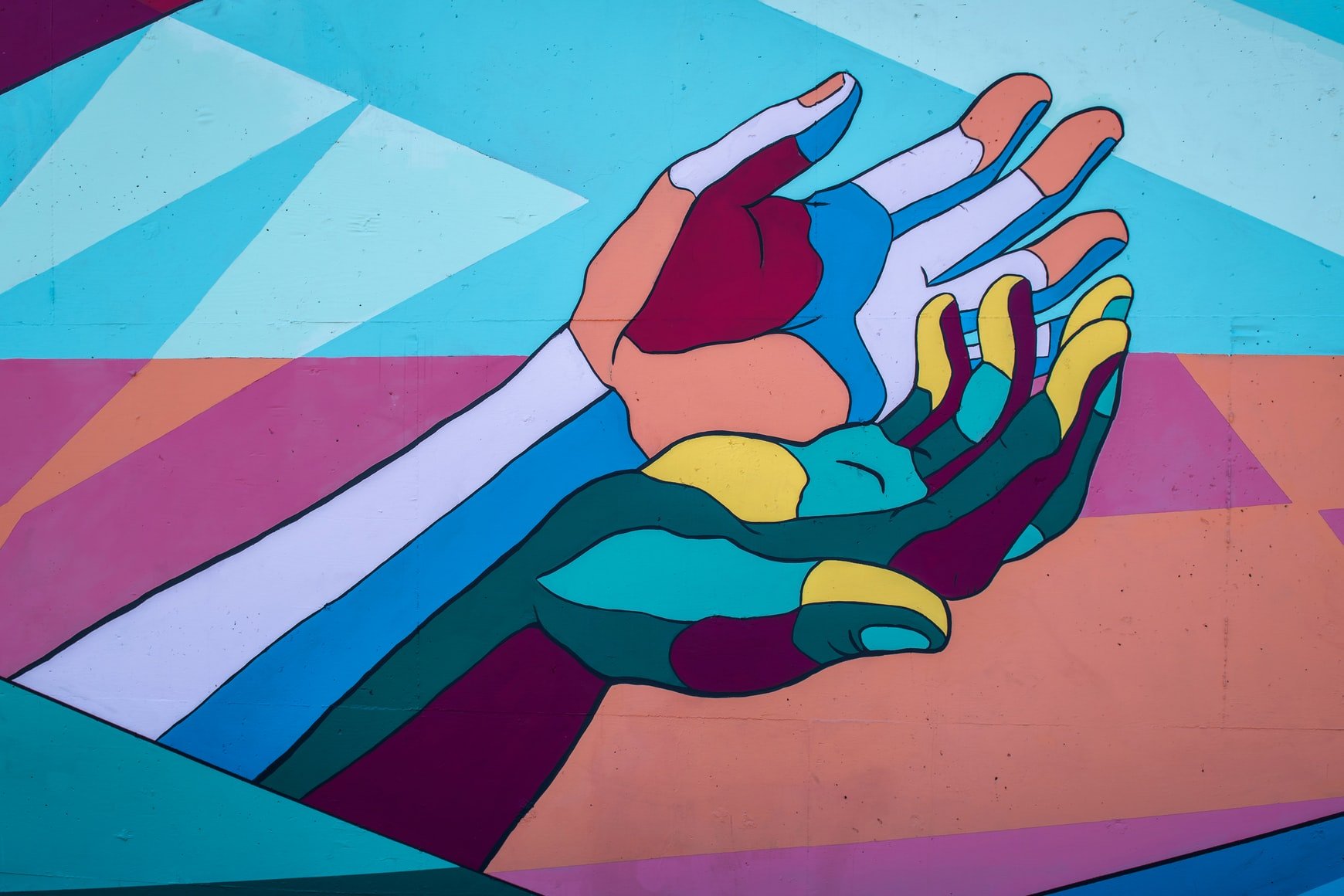
Co-Investigators & Collaborators
-

Shelley Ruth Butler
Shelley Ruth Butler, PhD, is a cultural anthropologist whose research, teaching, and consulting focus on legacies of colonialism, racism, and apartheid in museums and heritage sites in Canada and South Africa. She is co-editor of Curatorial Dreams: Critics Imagine Exhibitions (MQUP 2016) and author of Contested Representations: Revisiting Into the Heart of Africa (University of Toronto Press 2011). She offers “Curatorial Dreaming” workshops to museum professionals, academics, and community groups and is a Lecturer with McGill University’s Institute for the Study of Canada.
Role: Co-Investigator + Coordinating Committee
Cluster: Critical Race Museology -

Ewa Chomicka
Ewa Chomicka is a cultural anthropologist, Polish philologist, museum professional, and curator of contemporary art. She heads the Museum Practices Lab at the POLIN Museum of the History of Polish Jews – a unit dealing with the development of cooperation between the museum and contemporary artists, as well as interdisciplinary initiatives combining contemporary art, research, and activism. Through these activities she tests the possibilities for building relationships among cultural institutions and community members, develops long-term participatory initiatives, and expands the field of social arts. She is also a member of the Museums for Climate initiative, Culture for Climate collective, and Chorus of Women performance group.
Role: Collaborator
Cluster: National Heritage and Traumatic Memory -

Tandazani Dhlakama
Zimbabwe born, Tandazani Dhlakama is Curator of Global Africa at the Royal Ontario Museum (ROM), Toronto. Previously she was curator at Zeitz MOCAA. Prior to that she worked at the National Gallery of Zimbabwe in Harare. She has contributed to exhibitions, conferences, and a biennial in a variety of functions. Dhlakama holds an MA in Art Gallery and Museum Studies from the University of Leeds, UK (2015) and a BA in Fine Art and Political Science from St. Lawrence University, USA (2011). At Zeitz MOCAA she curated “Seekers, Seers, Soothsayers” (2023), co-curated the travelling exhibition “When We See Us: A Century of Black Figuration in Painting” (2022), co- curated “Shooting Down Babylon: A Tracey Rose Retrospective” (2022), and curated “Five Bhobh: Painting at the End of an Era” (2018) amongst others.
Role: Co-Investigator
Cluster: Critical Race Museology -

Angela Failler
Angela Failler, PhD is Professor of Women’s and Gender Studies and Canada Research Chair in Culture and Public Memory at U. Winnipeg, where she is also Director of the Centre for Research in Cultural Studies. Her research is focused on how practices of culture and public memory are used to grapple with the ongoing effects of historical violence and injustice. She leads a long-term study on public memory of the 1985 Air India Bombings, and co-leads the Museum Queeries cluster.
Role: Co-Investigator + Coordinating Committee
Cluster: Museum Queeries -

Andrea Fatona
Andrea Fatona is an Independent Curator and an Associate Professor at the Ontario College of Art and Design University. She is concerned with issues of equity within the sphere of the arts and the pedagogical possibilities of artworks produced by ‘other’ Canadians in articulating broader perspectives on Canadian identities. Fatona is the recipient of awards from Canada Council for the Arts, Ontario Arts Council, the Social Sciences and Humanities Research Council of Canada, and was the 2017/18 OCAD U-Massey Fellow. She currently holds a Canada Research Chair (Tier 2) in Canadian Black Diasporic Cultural Production at OCAD U.
Role: Collaborator
Cluster: Critical Race Museology -

Sarah Moore Fillmore
Sarah Moore Fillmore is Chief Curator and Deputy Director of the Art Gallery of Nova Scotia. She is a champion of emerging Canadian artists, with an interest in Atlantic Canadian art in a national context. From 2007 to 2015, Fillmore was chair of the jury and curator of the Sobey Art Award, Canada’s premier contemporary art award for an artist 40 or under. She is the author of numerous catalogues and journal essays and has lectured nationally and internationally.
Role: Collaborator
Cluster: Unsettling and Indigenizing Museology -

Silvia Forni
Silvia Forni, PhD is the Director of the Fowler Museum at UCLA. Previously, she was Senior Curator of Global Africa and Deputy VP of the Department of Art & Culture at the Royal Ontario Museum. From 2015 to 2018, together with Dr. Julie Crooks and Dominique Fontaine, Dr. Forni was responsible for “Of Africa”, a multiplatform project aimed to support the sustained and long-term promotion of the cultural and creative diversity of Africa and its diaspora through an engagement with the collections in the museum, and in dialogue with contemporary artists and creators. Silvia is also Associate Professor of Anthropology at the University of Toronto.
Role: Co-Investigator
Cluster: Critical Race Museology -

Jason Francisco
Jason Francisco (born 1967, California) is an artist and essayist. Joining documentary and conceptual art, his photoworks and writings focus on the complications of historical memory and new directions in the art of witness. Much of his work concerns the inheritance of trauma, specifically concerning Jewish experience in Eastern Europe. His most recent photo-text work is Alive and Destroyed: A Meditation on the Holocaust in Time (Daylight Books, 2021).
Role: Collaborator
Cluster: National Heritage and Traumatic Memory -

Aiden Gillis
Aiden Gillis is a visual artist and curator based in Kjipuktuk (Halifax, NS) on Mi’kma’ki (Mi’kmaq Territory), with Mi’kmaw and French roots in Western Ktaqmkuk (Newfoundland). Gillis grew up primarily on Wolastokuk (Maliseet Territory) in New Brunswick.
Gillis is the Indigenous Arts Programmer at the Art Gallery of Nova Scotia, supporting both the arts education and curatorial departments.
Gillis serves on the Board of Directors for the Mi’kmaw Native Friendship Centre and is an Executive Committee Member for the Canadian Art Gallery Educators. In 2017, he completed a BFA with a minor in Art History at NSCAD University.Pronunciations
Role: Collaborator
Cluster: Unsettling and Indigenizing Museology -

Dorota Głowacka
Dorota Głowacka, PhD (she/her) teaches critical theory, gender theory, and Holocaust and genocide studies at the University of King’s College in Kjiputktuk/Halifax, Canada. She is the author of Po tamtej stronie: świadectwo, afekt, wyobraźnia (From the Other Side: Testimony, Affect, Imagination, Warsaw, 2017) and Disappearing Traces: Holocaust Testimonials, Ethics, and Aesthetics (Washington UP, 2012). She coedited Imaginary Neighbors: Mediating Polish-Jewish Relations after the Holocaust (Nebraska UP, 2007) and Between Ethics and Aesthetics: Crossing the Boundaries (SUNY Press, 2002). Głowacka’s current research focuses on gender and genocide, and on the intersections of the Holocaust and settler colonial genocides in North America.
Role: Collaborator
Cluster: National Heritage and Traumatic Memory -
Naomi Hamer
Naomi Hamer (she/her) is an Associate Professor in the Department of English at X University. Her research and publications examine the cross-media adaptation of children's literature across picture books, apps, and children’s museums. She is the co-editor of More Words About Pictures: Current Research on Picture Books and Visual/Verbal Texts for Young People (eds. Hamer, Nodelman & Reimer) and The Routledge Companion of Fairy-tale Cultures and Media (eds. Greenhill, Rudy, Hamer & Bosc). Her recent project with Dr. Ann Marie Murnaghan (York U) - “Curating the Story Museum: Transmedia practices, participatory exhibits, and youth citizenship” - has been awarded a Social Sciences and Humanities Research Council Insight Development Grant.
Role: Collaborator
Cluster: Children’s Museology -

John G. Hampton
John G. Hampton (they/them or he/him) is the Executive Director and CEO of the MacKenzie Art Gallery. They hold a Masters of Curatorial Studies from the University of Toronto, and a BA in Visual Arts from the University of Regina. John is a citizen of the Chickasaw Nation and grew up in Regina, Saskatchewan. In addition to their role at the MacKenzie, Hampton holds an Adjunct Curator appointment at the Art Museum at the University of Toronto, adjunct professorship at the University of Regina, and serves on the board of the Indigenous Curatorial Collective.
Role: Collaborator
Cluster: Unsettling and Indigenizing Museology -

Heather Igloliorte
Heather Igloliorte is a Nunatsiavummiuk-Newfoundlander from Happy Valley - Goose Bay, NL. She is the University Research Chair in Indigenous Circumpolar Arts at Concordia University in Tiohtiá:ke (Montreal), where she is the Director of the “Inuit Futures in Arts Leadership” project and Co-Director of the Indigenous Futures Research Centre. Her research focuses on circumpolar Indigenous art histories, material and new media art practices, research-creation, critical museology, and curatorial studies. She has been a curator for 17 years and is a founding member of GLAM Collective.
Role: Co-Investigator + Coordinating Committee
Cluster: Unsettling and Indigenizing Museology -

Aleksandra Janus
Aleksandra Janus, PhD, is a researcher, curator, and administrator of cultural programs in Warsaw, Kraków, and Berlin, including: Vice President of the Zapomniane Foundation (dedicated to locating unmarked burial sites of the Jewish victims of the Holocaust), co-founder of the Museum Lab training program for Polish heritage professionals, head of the Open Culture Studio, Director and board member of Centrum Cyfrowe (Digital Center), co-founder of the Culture for Climate initiative, Chair of the advisory board to FestivALT/CentrALT center for Jewish art and activism, and a Curator of the Exercising Modernity program.
Role: Collaborator
Cluster: National Heritage and Traumatic Memory -

Alice Ming Wai Jim
Alice Ming Wai Jim is Professor and Concordia University Research Chair in Ethnocultural Art Histories. She is co-editor-in-chief of the journal Asian Diasporic Visual Cultures and the Americas (Brill Publishers, with Concordia U. and NYU). An art historian and curator, her research on diasporic art in Canada and contemporary Asian art has generated new dialogues within and between ethnocultural and global art histories, critical race theory, media arts, and curatorial studies. Jim is a Social Sciences and Humanities Research Council (SSHRC) Co-Investigator and a Fonds de Recherche du Québec Principal Investigator for the Trans-Atlantic Platform project, “Worlding Public Cultures”. Her SSHRC-funded research project examines Afrofuturism and Black Lives Matter in the Canadian art scene.
Role: Collaborator
Cluster: Critical Race Museology -

Magda Rubenfeld Koralewska
Magda Rubenfeld Koralewska is a social entrepreneur, cultural producer, and activist. Magda currently works as Limmud’s European Coordinator and Co-Artistic Director of FestivALT, a Jewish art & activism collective investigating the complexities of contemporary Jewish Poland. She is interested in questions of difficult heritage, Jewish memory, Polish-Jewish dialogue, informal Jewish education, and community engagement. She is also the co-curator of participatory interventions that take a critical look at museum collections.
Role: Collaborator
Cluster: National Heritage and Traumatic Memory -
Jonathan Lainey
Jonathan Lainey is the Curator of Indigenous Cultures at the McCord Museum in Montreal. Previously, he was Curator at the Canadian Museum of History and Archivist at Library and Archives Canada. Jonathan's research interests include the political and cultural history of Indigenous peoples in Quebec and Canada, and the history of objects and collections. Jonathan is a member of the Huron-Wendat Nation of Wendake, and has a background in Anthropology and a MA in History from Laval University.
Role: Collaborator
Cluster: Unsettling and Indigenizing Museology -

Bryce Lease
Bryce Lease is Professor of Theatre and Performance Studies at The Royal Central School of Speech and Drama, University of London. His research spans theatre, performance, museums, and memory studies. He is author of After ’89: Polish Theatre and the Political (2016) and co-editor of Contemporary European Playwrights (2020), A History of Polish Theatre (2022), Staging Difficult Pasts: Transnational Memory, Theatres, and Museums (2024), and the journal Contemporary Theatre Review. He is currently Co-Director of the E3-Funded Centre for Performance, Technology and Equity (PTEQ).
Role: Collaborator
Cluster: National Heritage and Traumatic Memory -

Angus Leendertz
Angus Leendertz was born in South Africa to a family with Khoisan-Dutch-South East Asian roots and left in 1974 to complete studies in Interior Architecture in Amsterdam after a course in Graphic Design at the University of Cape Town. In 1980 he moved to Sydney to work in his field and in 1997 responded to a call by Nelson Mandela to return to Cape Town. Angus is a PhD candidate at Canberra University and is a Founding Member of The Camissa Museum at The Castle of Good Hope in Cape Town, dividing his time between South Africa and Australia.
Role: Collaborator
Cluster: Children’s Museology -
Erica Lehrer
Erica Lehrer is a sociocultural anthropologist and curator. She is Professor in the departments of History and Sociology-Anthropology at Concordia University, Montreal, and the Founding Director of its Curating and Public Scholarship Lab (CaPSL). Her publications include Curatorial Dreams: Critics Imagine Exhibitions (2016); Jewish Space in Contemporary Poland (2015); Jewish Poland Revisited: Heritage Tourism in Unquiet Places (2013); and Curating Difficult Knowledge: Violent Pasts in Public Places (2011), and numerous articles. Her exhibitions include “Souvenir, Talisman, Toy” (2013) and “Terribly Close: Polish Vernacular Artists Face the Holocaust” (2018-19) with Roma Sendyka, Wojciech Wilczyk, and Magdalena Zych at the Kraków Ethnographic Museum.
Role: Principal Investigator + Coordinating Committee
Cluster: National Heritage and Traumatic Memory -

Qanita Lilla
Qanita Lilla is a South African curator, researcher and writer. She is Associate Curator, Arts of Africa at Agnes Etherington Art Center, Queens University situated on Anishinaabe and Haudenosaunee Territory. At Agnes, Qanita intercedes on behalf of the Lang Collection of African Art, one of the largest collections of its kind in a Canadian university museum. She is also Assistant Professor in Screen Cultures and Curatorial Studies in the Film and Media Department where she teaches Critical Curatorial Studies. Her research interests include: the life and after-life of objects in collections, the radical potential of museums and curatorial practice, representations of racialised minorities, curating excluded narratives and epistemologies, Indigenous curatorial practices and rematriation/repatriation debates. She hosts a podcast, has published in various peer-reviewed publications and has contributed book chapters to anthologies.
Role: Collaborator Cluster: Critical Race Museology
-

Amy Lonetree
Amy Lonetree, PhD is an enrolled citizen of the Ho-Chunk Nation and an Associate Professor of History at the University of California, Santa Cruz. She received her PhD in Ethnic Studies from the University of California, Berkeley, and her scholarly research focuses on Indigenous history, visual culture studies, and museum studies. Her publications include Decolonizing Museums: Representing Native America in National and Tribal Museums (2012); The National Museum of the American Indian: Critical Conversations (2008) co-edited with Amanda J. Cobb; and the co-authored volume People of the Big Voice: Photographs of Ho-Chunk Families by Charles Van Schaick, 1879-1942 (2011).
Role: Collaborator
Cluster: Unsettling and Indigenizing Museology -

Michelle McGeough
Michelle McGeough, PhD (Métis/Cree) is originally from Amiskwaciwâskahikan, in the treaty six region of what is currently referred to as Canada. Prior to accepting her current position as an Assistant Professor at Concordia University, she taught at the University of British Columbia. Dr. McGeough received her PhD in Indigenous Art Histories from the University of New Mexico. Her research interests have focused on the Indigenous two-spirit/Indigiqueer identity.
Role: Co-Investigator
Cluster: Museum Queeries -

Lennon Mhishi
Lennon Mhishi is an anthropologist whose interdisciplinary work spans interests in Africa and its diasporas; museums; material culture and art practices; the afterlives of slavery and colonialism; and approaches to contemporary forms of exploitation, forced labour, and human rights in African countries.
Before joining the University of British Columbia’s Department of Anthropology, Mhishi worked at the University of Oxford, based at the Pitt Rivers Museum. As part of the project, “Reconnecting Objects”, he collaborated with partners to explore colonial collections—as well as art practices—and the possibilities of mobilising African and diasporic communities in rethinking these.
Mhishi holds degrees in Sociology and Anthropology from the University of Zimbabwe, Monash University, and SOAS University of London.
Role: Collaborator
Cluster: Critical Race Museology -
Heather Milne
Heather Milne is a Professor of English at the University of Winnipeg who works at the intersection of cultural studies, literary studies, and queer studies. She is the author of Poetry Matters: Neoliberalism, Affect, and the Posthuman in Twenty-First Century North American Feminist Poetics (University of Iowa Press, 2018) and co-editor of Prismatic Publics: Innovative Canadian Women’s Poetry and Poetics (Coach House, 2009). With other members of the Museum Queeries cluster, she co-edited the forthcoming volume Museum Queeries: Two-Spirit, Indigiqueer, and LGBBTQ* Interventions into Museums, Archives and Curation and is currently at work on a volume on gender, sexuality and poetry under contract with Bloomsbury Press.
Role: Co-Investigator
Cluster: Museum Queeries -

Wayne Modest
Wayne Modest is Director of Content of the Wereldmuseum with locations in Amsterdam, Leiden, and Rotterdam in the Netherlands. He is also Professor of material culture and critical heritage studies at the Vrije Universiteit, Amsterdam. A cultural studies scholar by training, Modest works at the intersection of material culture, memory, and heritage studies, with a strong focus on colonialism and its afterlives in Europe and the Caribbean. Among his current research projects, Modest is Programme Leader for the Dutch National Research Agenda funded project, “Pressing Matter: Ownership, Value, and the Question of Colonial Heritage in Museums”.
Role: Co-Investigator
Cluster: Critical Race Museology -

Monica Eileen Patterson
Monica Eileen Patterson, PhD is Assistant Director of Curatorial Studies, Institute for the Comparative Study of Literature, Art, and Culture at Carleton University. Her publications include being co-editor and contributing author of two books: Curating Difficult Knowledge: Violent Pasts in Public Places (2011) and Anthrohistory: Unsettling Knowledge, Questioning Discipline (2011). As a scholar, curator, and activist, Patterson is particularly interested in the ways in which children, childhood, and racism are represented and engaged in contemporary public spheres. Her current research project, “A New, Critical Children’s Museology” identifies and develops approaches to producing exhibition content not just for or about children, but by and with children across the globe.
Role: Co-Investigator + Coordinating Committee
Cluster: Children’s Museology -

Ciraj Rassool
Ciraj Rassool, PhD is Senior Professor of History at the University of the Western Cape, and also teaches Museum & Heritage Studies & Curatorship. His research is on changing old museums and making new museums, race in museums, restitution, political movements, and the politics of non-racialism. He served on the boards of the District Six Museum & Iziko Museums of South Africa. He is a member of the Scientific Advisory Board for the study of the Von Luschan Collection at the Staatliche Museen zu Berlin, Germany. He serves on the new South African advisory board for restitution and repatriation.
Role: Co-Investigator
Cluster: Critical Race Museology -

Carmen Robertson
Carmen Robertson, PhD (Scots-Lakota) holds the Canada Research Chair in Indigenous North American Art and Material Culture at Carleton University in Ottawa. Robertson's program of research includes art historical and curatorial investigations of Indigenous arts, including the art of Anishinaabe artist Norval Morrisseau.
Role: Co-Investigator
Cluster: Unsettling and Indigenizing Museology -
Roma Sendyka
Roma Sendyka is a cultural anthropologist and memory studies scholar. She is Professor, co-founder and first director of the Research Center for Memory Cultures. She teaches in the Anthropology of Literature and Cultural Studies department at the Faculty of Polish Studies at the Jagiellonian University, Kraków. She specializes in criticism and theory, Holocaust studies, and memory studies. Her focus is on relations between behaviours, sites, images and memory, and she is currently working on a project on “non-sites of memory” in Central and Eastern Europe and bystanding to the Holocaust in Poland. Sendyka is also co-founder of the Curatorial Collective and co-curator of the 2018-19 exhibition “Terribly Close: Polish Vernacular Artists Face the Holocaust” at the Kraków Ethnographic Museum. She authored three books on identity and memory, and co-edited eleven volumes dealing with memory cultures.
Role: Co-Investigator
Cluster: National Heritage and Traumatic Memory -

Marcus Solomon
Marcus Solomon is founder of the Children's Movement and the Children's Resource Centre. His work with children emerged out of political activism against Apartheid in the late 1970's and early 1980's in the working class residential area of Mitchell's Plain, Cape Town, South Africa. Through this experience Marcus was captured by the idea that children have agency and potential as active participants in the broader community, to help build and sustain a qualitatively better world.
Role: Collaborator
Cluster: Children’s Museology -

Raegan Swanson
Raegan Swanson is the Executive Director of The ArQuives. She holds a BA from Collège universitaire de Saint-Boniface and a Masters of Information from the University of Toronto iSchool. She has worked as an archivist at Library and Archives Canada, the Truth and Reconciliation Commission of Canada, Aanischaaukamikw Cree Cultural Institute, and as the Archival Advisor for the Council of Archives New Brunswick. She is currently working on a PhD focusing on the role of community archives in Inuit communities. She is a member of the Steering Committee of Canada’s Archives Taskforce to respond to the Truth and Reconciliation Commission’s “Calls to Action Report”.
Role: Collaborator
Cluster: Museum Queeries -

Paweł Sztarbowski
Paweł Sztarbowski is a dramaturg and PhD in Theatre Arts. He has worked as Deputy Director of Powszechny Theater in Warsaw since 2014 and teaches at the Theater Academy in Warsaw. Sztarbowski runs drama classes for “Laboratorium: Designing Culture” at SWPS University in Warsaw. As reviewer and publicist, he has written for Tygodnik Powszechny, Notatnik Teatralny, Teatr, Didaskalia, Opcje, Metro, Newsweek Polska, and numerous foreign theater publications such as Theater der Zeit and Svet e Divadlo. As a dramaturg, he has collaborated with Paweł Łysak, Wojciech Faruga, Michał Zadara, and Marcin Liber. Sztarbowski was awarded the Grand Prix of the “Two Theatres Festival”, celebrating the Polish Radio Theatre and the Polish Television Theatre in Sopot, Poland.
Role: Collaborator
Cluster: National Heritage and Traumatic Memory -

Carla Taunton
Carla Taunton, PhD, a white-settler scholar, is Associate Professor in the Division of Art History and Contemporary Culture at the Nova Scotia College of Art and Design University (NSCAD) in Mi’kma’ki and is the Special Advisor to the VP Academic and Research, Social Justice, and Decolonization. She works as an independent curator and is a founding member of the GLAM Collective. Her research contributes to arts-based critiques of settler colonialism and engages with theories of decolonization and settler responsibility. Currently, Taunton is part of numerous national and international research teams including “The Space Between Us; Counter Memory Activism” and “Inuit Futures”.
Role: Co-Investigator
Cluster: Unsettling and Indigenizing Museology -

Laura Vigo
Laura Vigo is Curator of Asian Art and Archeology at the Montreal Museum of Fine Arts. Vigo has a BA in Chinese Language and Art History from the Ca’ Foscari University of Venice, an MA in Asian Art and Archaeology, and a PhD in Chinese Archaeology from the School of Oriental and African Studies, University of London (UK). She is currently an invited Professor in Critical Art History at Université de Montréal. Her current research interests include the history of collecting “the Other”, specifically the reception and western-centric conceptualisation of Asian Art outside of Asia.
Role: Collaborator
Cluster: Critical Race Museology -

Joanna Wawrzyniak
Joanna Wawrzyniak is Associate Professor and Director of the Center for Research on Social Memory in the Faculty of Sociology, University of Warsaw, where she specializes in East-Central European memory processes. Her current projects include research on memories of socialism, neoliberal transformation, and deindustrialization in Poland and contributions to collaborative research on cultural heritage and memory processes in Eastern Europe, Western Europe, and East and South Asia. Together with Erica Lehrer, Joanna co-leads the project “Decolonial Museology Re-centered: Thinking Theory and Practice through East-Central Europe” and is the vice chair of the action “Slow Memory”.
Role: Collaborator
Cluster: National Heritage and Traumatic Memory -
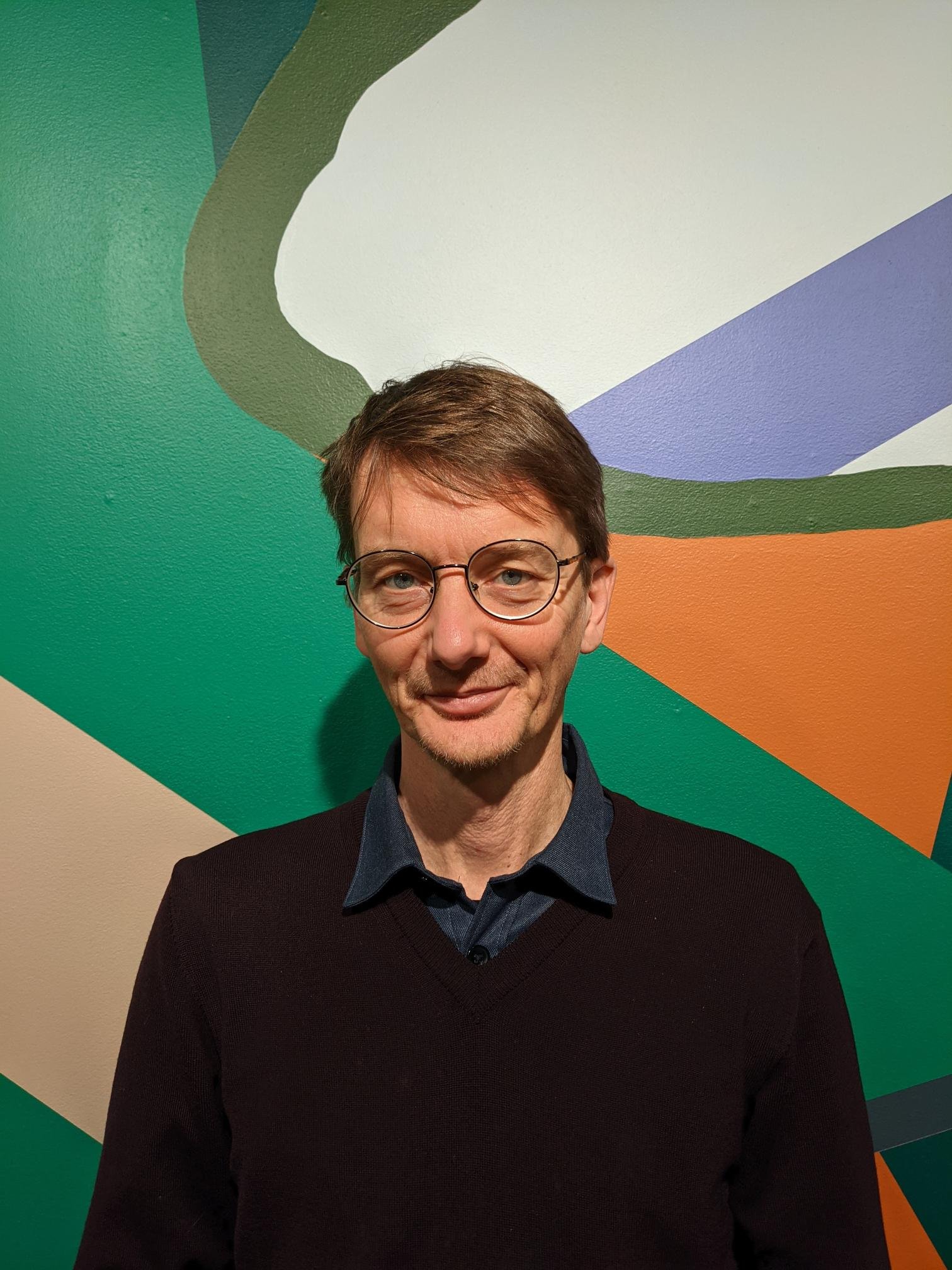
Pan Wendt
Pan Wendt is a curator, art historian and critic. He has been Curator at the Confederation Centre Art Gallery in Charlottetown since 2010. He was trained in Art History at Williams College (MA, 2003) and Yale University (MA, 2004 and MPhil, 2006), specializing in art of the 20th century, and is a sessional faculty at the University of Prince Edward Island. Wendt was also co-founder of the outdoor art festival Art in the Open, and its Co-Curator from 2011 to 2021. He has wide-ranging interests in the field, ranging from clothing-as-art to regimes of value and property.
Role: Collaborator
Cluster: Unsettling and Indigenizing Museology -

Magdalena Zych
Magdalena Zych is a cultural anthropologist, curator, and keeper at the Seweryn Udziela Ethnographic Museum in Kraków, Poland. Since 2008 she has coordinated research projects that cooperate with artists, activists, and academics and has created space for critical intervention into institutional collections and permanent displays. In her academic work she researches ethnographic collections in Poland from an international perspective.
Role: Collaborator
Cluster: National Heritage and Traumatic Memory
Research Assistants
-

Alaukwu Anozie
Alaukwu Anozie is pursuing his collaborative MA in Anthropology and African Studies alongside a Graduate Diploma in Curatorial Studies at Carleton University. His research looks into how heritage education impacts identity formation among Igbo youth in the Nigerian diaspora. An avid fan of digital storytelling, he's seeks to lower the barriers of engagement around heritage education for children and youth of all backgrounds.
He is currently part of the Young Canada Works in Heritage program as an Education and Public Programming assistant at the Hangar Flight Museum in Calgary, Alberta.
Role: Research Assistant
Cluster: Children’s Museology -

Hiba Burqan
Hiba Burqan is a graduate student in the doctoral program in Cultural Mediations at Carleton University, focusing on investigating co-design as a decolonial curatorial approach for museums and cultural institutions in Palestine. Hiba's career has included the typical practice of architecture in the context of firms, creating and teaching undergraduate courses in design theories and practices, and exhibition development in a diversity of design, curation, and research projects in museums, cultural institutions, and science centers. Her professional career has run parallel to long-term voluntary participation in the cultural arena through dance and choreography.
Role: Research Assistant
Cluster: Children’s Museology -

Mahlet Cuff
Mahlet Cuff is an undergraduate student majoring Women’s and Gender Studies with honours at the University of Winnipeg. They are a part of the Musuem Queeries team, while being a student they have experience as an interdisciplinary artist, filmmaker, visual media curation, film programming, community organizing and archival research. Cuff’s main interest in research is looking at the history of Black queer life in Manitoba.
Role: Research Assistant Cluster: Museum Queeries
-

Nour El Sabeh
Nour El Sabeh is a Lebanese interdisciplinary artist and researcher currently based in Kjipuktuk. El Sabeh holds a BA in Interior Architecture and an MA in Islamic Art history from the Lebanese American University, and is currently an MFA candidate at NSCAD University. El Sabeh is currently a research assistant for the upcoming show curated by Dr. Amin Alsaden at the Dalhousie Art Gallery in collaboration with Pamela Edmonds, and is under the mentorship of Dr. Carla Taunton.
Role: Research Assistant Cluster: Unsettling and Indigenizing Museology
-
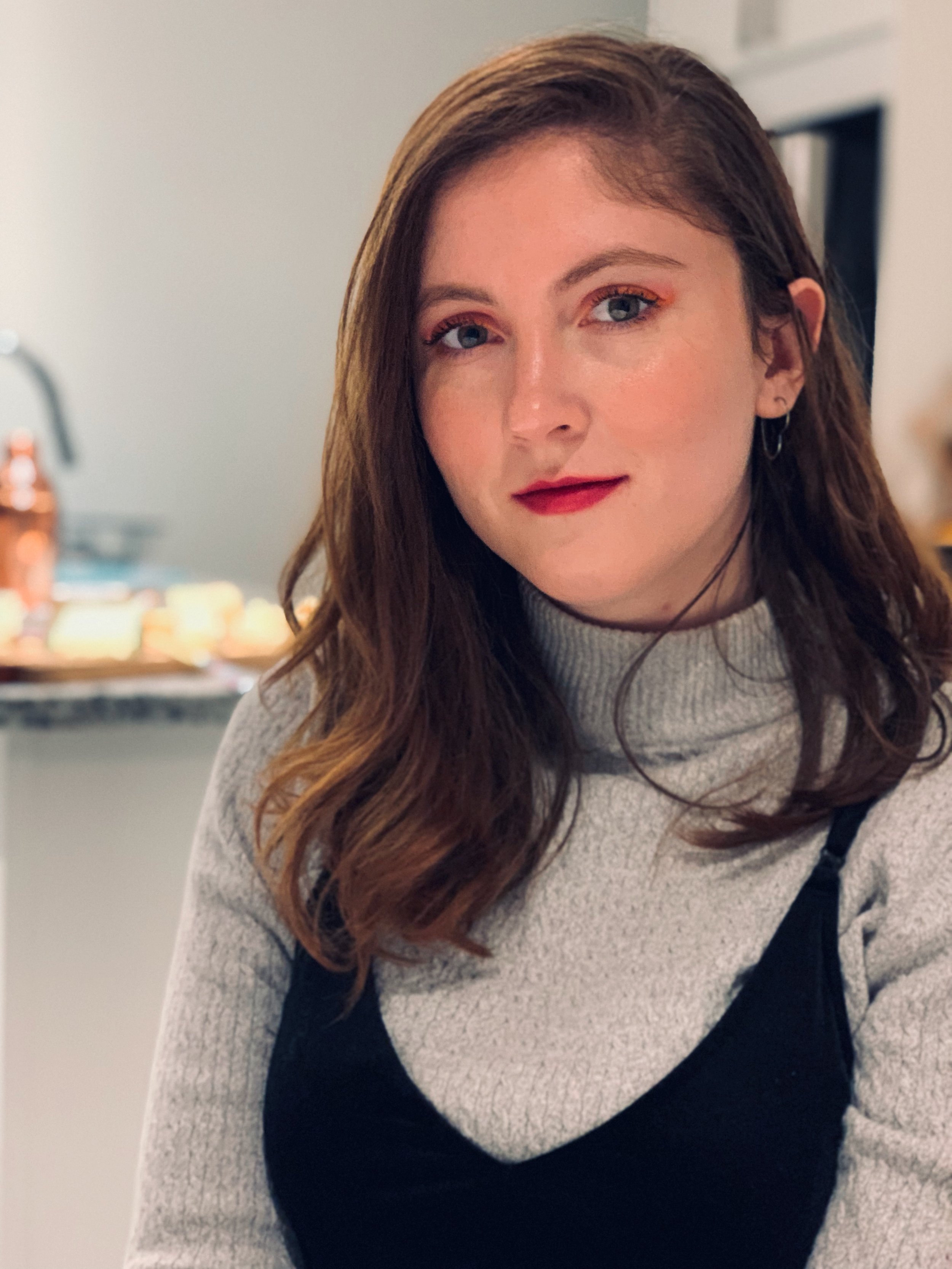
Rebecca Friend
Rebecca Friend is currently pursuing a PhD in Public History at Carleton University. She holds a MA in Public History, a Graduate Diploma in Curatorial Studies from Ottawa’s Carleton University, and a Bachelor in History (Honours program) from Concordia University in Montréal. Her Social Sciences and Humanities Research Council-funded research studies representations of children and childhood in Canadian commemorations, and captures contemporary children’s own interpretations of the messages communicated. Rebecca has worked as a research assistant with the Reimagining the Children’s Museum Team at the Canadian Museum of History, and most recently as a Young Canada Works in Heritage Organizations Program Officer with the Canadian Museums Association.
Role: Research Assistant
Cluster: Children’s Museology -
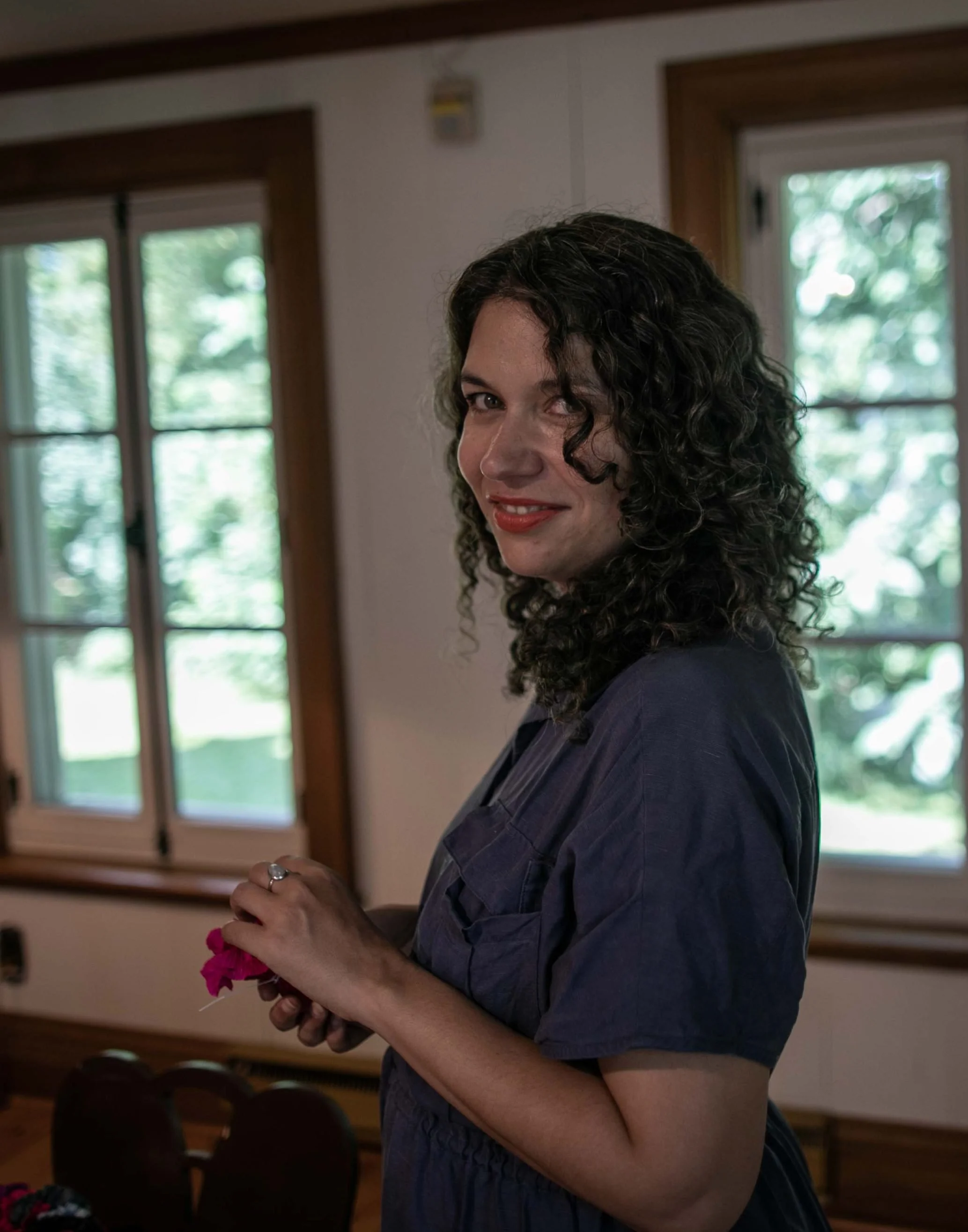
Tanha Gomes
Tanha Gomes is an artist, researcher, and cultural worker based in Tiohtià:ke/Mooniyang/Montreal, and a PhD candidate in Cultural Mediations at Carleton University. Originally from Brazil, she holds a BFA in Photography and an MA in Art Education from Concordia University. Her work focuses on co-creation with migrant communities—particularly children—through intergenerational, community-based projects rooted in relational aesthetics and critical pedagogy. Tanha’s practice centres care and collective learning. Her work has been supported by the Social Sciences and Humanities Research Council, the Canada Council for the Arts and the Conseil des arts et des lettres du Québec, among others.
Role: Research Assistant
Cluster: Children’s Museology -

Hanako Hubbard-Radulovich
Hanako Hubbard-Radulovich is a curator based in Ottawa, ON, with roots in Mnidoo Mnising (Manitoulin Island), specializing in Indigenous/ decolonial curation. She holds a bachelors in Art History, and a diploma in curatorial studies from Carleton University. She has Co-Curated “Weaving Together: The Art of Shirley Bear” at Carleton’s MacOdrum Library, and the 2024 exhibition, “Stories my Father Couldn’t Tell Me: Jeff Thomas’s Origin” at the Ottawa Art Gallery. Additionally, she is a visual artist, focusing on blending traditional Ojibwe beadwork and motifs with contemporary “decora” elements, creating charming pairs of earrings and medallions.
Role: Research Assistant Cluster: Unsettling and Indigenizing Museology
-
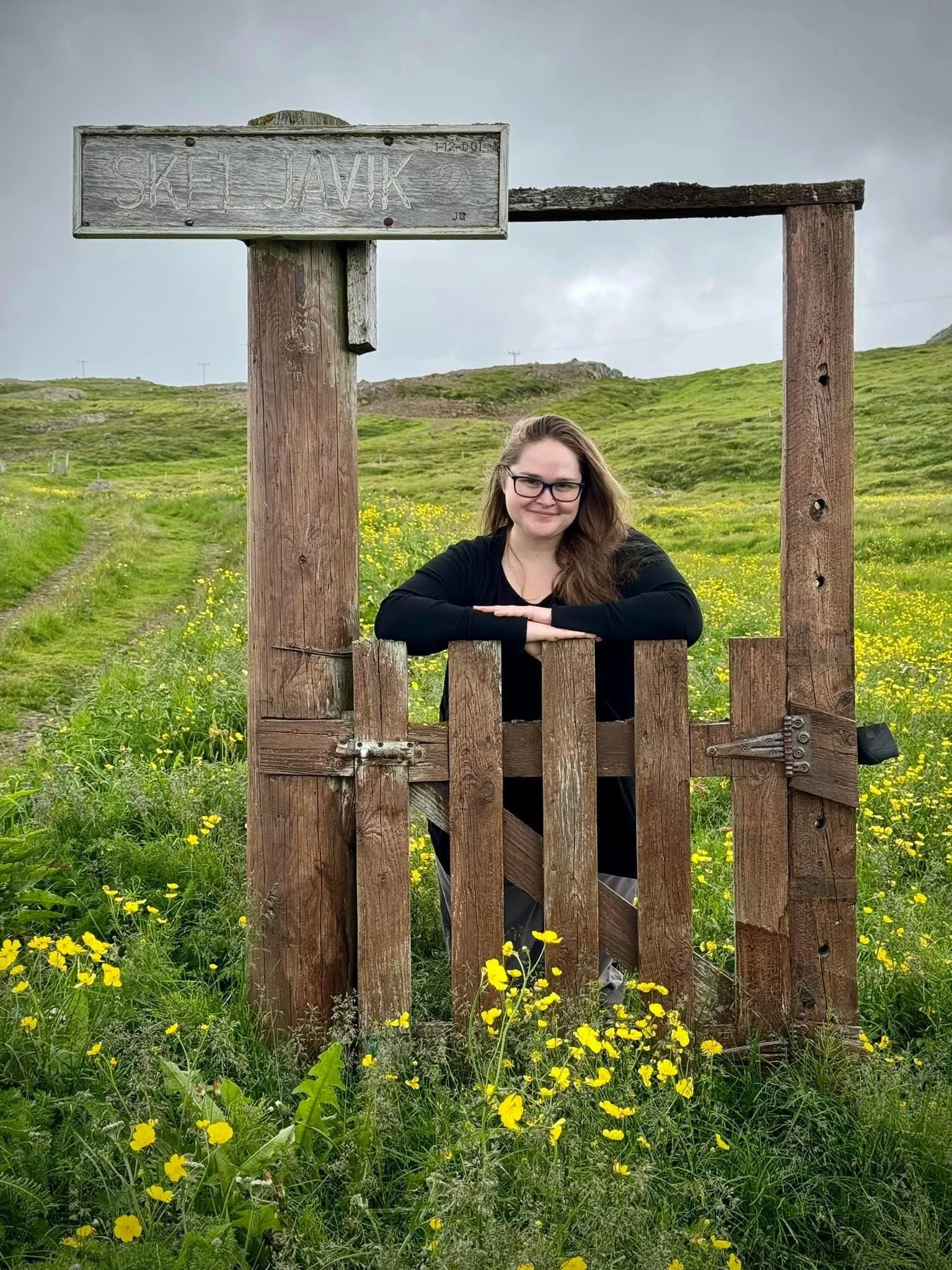
Emily Jenkins-Moses
Emily Jenkins-Moses is pursuing her PhD in Cultural Mediations and a diploma in Curatorial Studies at Carleton University. At California State University, Chico, she focused on the intersection between museums and heritage, anthropology, and childhood. Her master’s thesis, “Fostering Empathy: Storytelling, Community Representation, and Multivocality in Children’s Museums,” examined how children’s museums across the United States of America incorporate and articulate concepts of empathy in their exhibits. She is currently working to expand this research to also focus on how museum representation impacts children’s feelings of belonging and inclusion through child-centered methods.
Role: Research Assistant
Cluster: Children’s Museology -
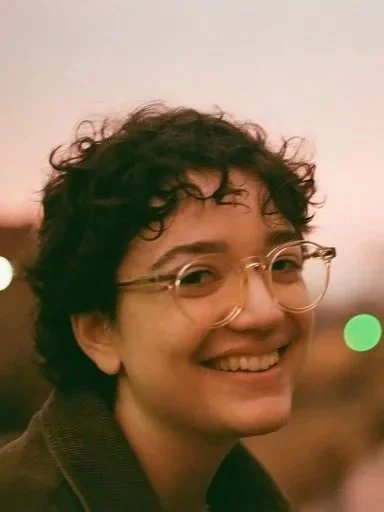
Nic Kaneski
Nic Kaneski (he/they) is a Ukrainian settler descendant living and working on Treaty 1 Territory, currently pursuing a Bachelor of Arts (Honours) in Women’s and Gender Studies with a minor in Urban and Inner-City Studies at the University of Winnipeg. His main area of interest is revolutionary, feminist, and abolitionist care ethics. Informed by their lived experience as a trans person accessing gender-affirming care and thinking through the body as an archival site, his research explores representations of queer and trans communities’ access to healthcare as narrativized in public memory institutions.
Role: Research Assistant Cluster: Museum Queeries
-
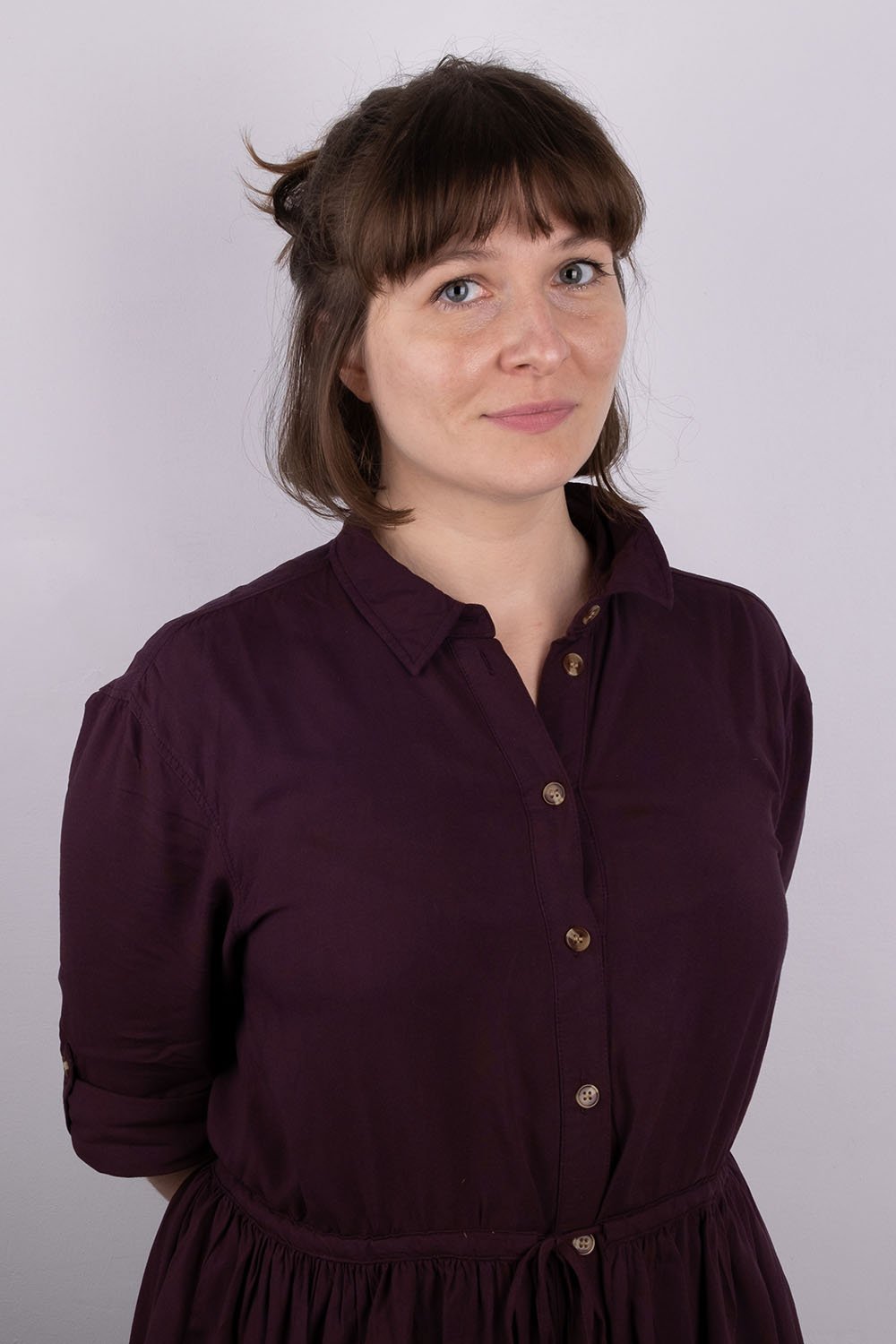
Aneta Kopczacka
Aneta is a curator and producer of photographic projects that holds an M.A. in Philosophy and Cultural Studies from Maria Curie-Skłodowska University in Lublin, Poland. Currently, Aneta is a Ph.D. candidate at the Doctoral School of Humanities at the University of Warsaw. Her current research focuses on curatorial strategies toward vernacular photographs held in public museum collections. Her main area of interest concerns family photos – their status, effect on people, and ways they can be used.
Role: Research Assistant Cluster: National Heritage and Traumatic Memory
-
Ekaterina (Katya) Korableva
Katya Korableva (she/her) is a social researcher and curator working at the intersection of social sciences, arts, and activism. She is currently pursuing a PhD in Humanities at Concordia University in Montreal. With a background in urban studies, migration studies, and interdisciplinary research, Katya is now focusing on the contestations surrounding public history, reconciliation, and memory-making in post-conflict and post-migrant societies. Her PhD project explores the politics and relational ethics involved in representing conflict-induced migration.
Role: Research Assistant Cluster: National Heritage and Traumatic Memory
-

Diane Langevin
Diane is a Mi'kmaq/settler and a member of Millbrook First Nation. Diane completed her undergrad majoring in Art History at NSCAD University and continued to the Art Education graduate program with a focus on museum/curatorial studies. Diane's dissertation is a decolonial resurgence project centred on children's toys. Her interests include decolonization and Indigenous resurgence, toys and photography (preferably together), foxes, and Morgan Toney's version of the Ko'jua.
Role: Research Assistant Cluster: Unsettling and Indigenizing Museology
-
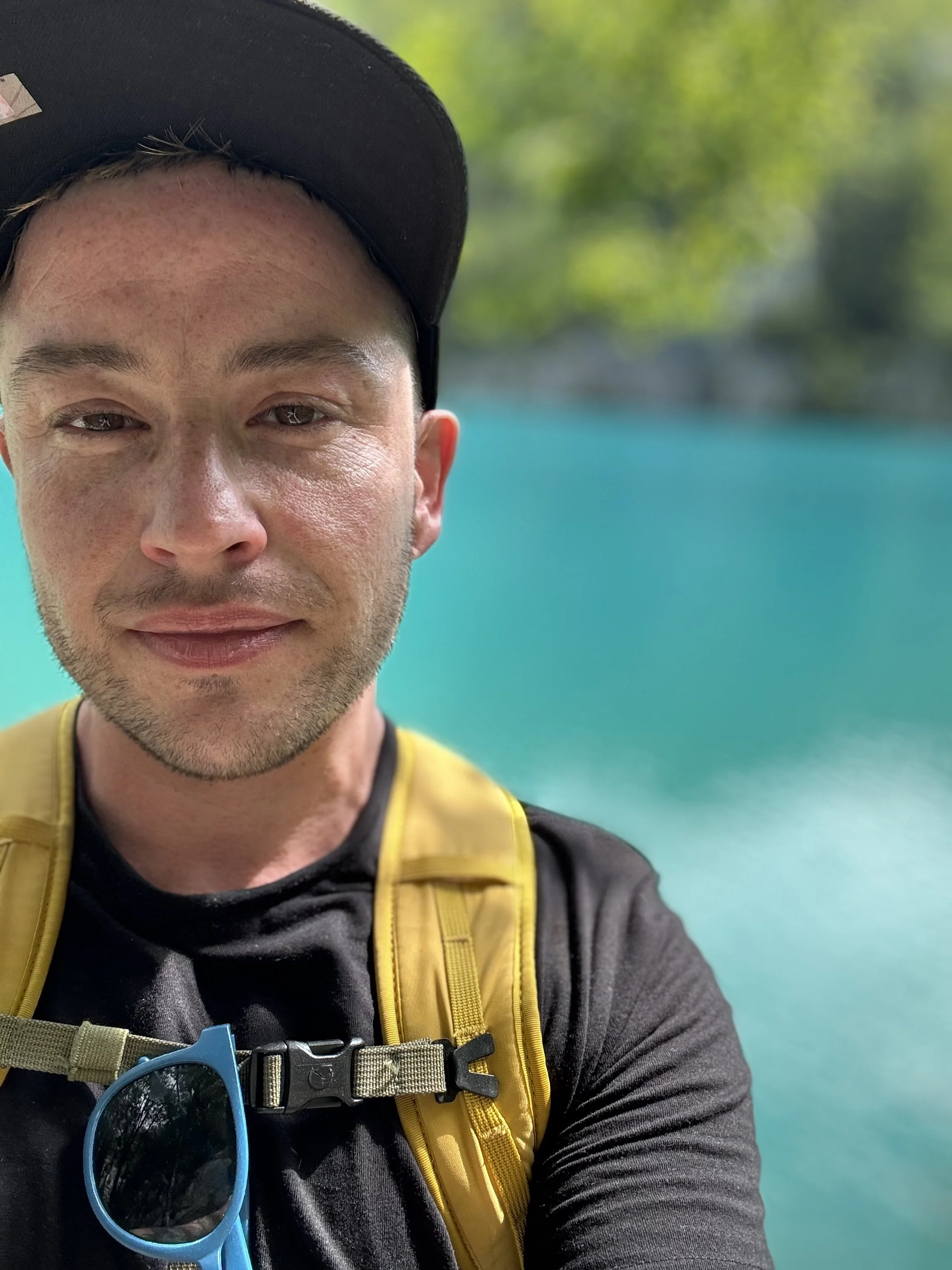
Elliott Long
Elliott Long (he/they) is a digital and fibre artist and Cultural Studies graduate student holding a BAH in English from the University of Winnipeg. A queer parent and dog lover, they explore human-animal connections and queerness in nature through both research and creative practice. Elliott is particularly interested in how queerness has been underrepresented or deliberately erased in cultural and natural histories, examining the ways these narratives shape our understanding of identity and the natural world. He is also the co-director and co-chair of the local grassroots organization Trans Manitoba.
Role: Research Assistant Cluster: Museum Queeries
-

Marlena Nikody
Marlena Nikody is a cultural studies scholar, former museum worker, educator and curator, currently pursuing a PhD in Humanities at the Jagiellonian University in Kraków, Poland. She is conducting research in the project “Challenging Populist Truth-Making in Europe: The Role of Museums in a Digital ‘Post-Truth’ European Society (CHAPTER)”. Marlena specializes in research on the impact of populism on museums in Poland and the role of museum education in challenging populist policies. She is a member of the Research Center for Memory Cultures. She also collaborates with the “Łaźnia Nowa” Theatre and the Utopia Home – International Empathy Centre.
Role: Research Assistant
Cluster: National Heritage and Traumatic Memory -

Varda Nisar
Varda Nisar was born and raised in Karachi, Pakistan and is currently a PhD Candidate attempting to understand the complicated nature of museums in Pakistan against the background of dictatorships. As an art educator, Varda was involved in establishing the Karachi Children’s Art Festival in 2014 and headed the Educational Program for the Karachi Biennale’s inaugural edition in 2017. In 2020 she moderated a speaker series titled “(Art+Micro)history: Contemporary Artistic voices from the South,” which aimed to highlight how artists living and working in Karachi explore issues of urbanization and development, while simultaneously navigating the implications of creating work in politically charged environments.
Role: Research Assistant
Cluster: Critical Race Museology -

Em Penner
Em Penner (they/them) is an Indigiqueer writer, editor, and researcher. They are from Winnipeg, MB and are a member of Peguis First Nation. Em holds a Bachelor of Arts in Rhetoric and Communications from the University of Winnipeg. Strongly influenced by the navigation of their own Indigiqueer identity and reconnection to their Indigenous culture, Em’s research explores the rich spectrum of Indigenous queer identities, decolonising Two-Spirit and Indigiqueer understandings and representations, and restoring their places in community for Indigenous sovereignty.
Role: Research Assistant Cluster: Museum Queeries
-

Danielle Printup
Danielle Printup (she/her) is a Hodinohso:ni (Onondaga) / Anishinaabe (Algonquin) arts worker and curator from Kitigan Zibi Anishnabeg, QC, with maternal roots in Ohsweken, ON. She has a Bachelor of Honors in Art History from the University of Guelph (2012). She has interned at the National Gallery of Canada and completed the RBC Indigenous Training Program in Museum Practices at the Canadian Museum of History. She has worked at Galerie SAW Gallery, the Indigenous Art Centre and the City of Ottawa's Public Art Program. She is the Indigenous Cultural Engagement Coordinator at Carleton University Art Gallery. Her most recent curatorial projects include curating a solo exhibition of Christian Chapman's work titled "Run to the Hills!" and a co-curated exhibition with Carmen Robertson of Norval Morrisseau's work titled "Medicine Currents," which will both be presented during the fall of 2023 at the Carleton University Art Gallery. She is a member of the Wolf Babe Collective, a group of curators and artists who create work that draws from their experiences as racialized First Nations non-binary people and women. Wolf Babe is set to make their curatorial debut at Gallery 101 with the exhibition 'When is Future? When is Now', opening August 10th as part of the Asinabka Film Festival. She is currently enrolled in the Masters Program in Art & Architectural History at Carleton University.
Role: Research Assistant Cluster: Unsettling and Indigenizing Museology
-

Anna Pruszyńska
Anna Pruszyńska is a practicing architect and a MA student at the Faculty of Sociology at the University of Warsaw, Poland. She is currently a Research Assistant at the project “Decolonial Museology Re-centered: Thinking Theory and Practice through East-Central Europe”. She graduated from Warsaw University of Technology in 2019. Her BSc thesis was an architectural and curatorial proposal for the Polish Herstoric Museum in which she investigated more inclusive and less doctrinaire ways of discussing - and inventing - the past. Her academic and activist interests span across sociology of work, gender studies, and sociology of housing.
Role: Research Assistant Cluster: National Heritage & Traumatic Memory -

Zofia Rohozińska
Zofia Rohozińska is a sociologist and art historian, PhD student at the Doctoral School of Social Sciences at the University of Warsaw, graduate of the Interdepartmental Individual Studies in the Humanities at the University of Warsaw and the Faculty of Visual Culture Management at the Academy of Fine Arts in Warsaw. Awarded in 2021 by the GESSEL Foundation for Zachęta National Gallery of Art for the best MA thesis. She is a member of the Center for Research on Social Memory and the managing editor of View. Theories and Practices of Visual Culture academic journal. As part of her doctoral studies she is researching memory and forgetting in the Polish art field on the example of socialist realism.
Role: Research Assistant Cluster: National Heritage & Traumatic Memory
-

Adrian Sakiestewa Gonzales
Adrian Sakiestewa Gonzales (He/Him) is a Trans Hopi, Diné and Latino undergraduate student in the Art History program with a minor in First People’s Studies at Concordia University. Raised in Southern Arizona, he has spent the last decade in Montreal, learning from and about the diverse peoples of Canada. His interests lay in learning about the multitude of ways Indigenous peoples globally have balanced cultural translation and preservation within the art world, along with queer Indigenous representations.
Role: Research Assistant Cluster: Museum Queeries
-

Dean E. Stephanus
Dean E. Stephanus is an MA student in the department of History at the University of the Western Cape in South Africa. His current research focuses on Brand, Symbol, and Biography, and how people live and think narratologically. This research is influenced by Prof. Ciraj Rassool’s ideas on 'biographic relations,' which understand biography and autobiography together, and thus life as a process of ongoing self narration. He is driven by his interest in the politics of history and his work explores questions of popular culture, popular racism, and the academic disciplines through which people have come to develop views about themselves and others, and the epistemic role museums have in this. His previous research discusses topics of popular racism and “Volkekunde” in apartheid South Africa.
Role: Research Assistant
Cluster: Critical Race Museology
Staff
-

Autumn Beals
Autumn (she/her) is the Communications Coordinator for Thinking Through the Museum. She is a public historian and visual artist based in Tiohtià:ke (Montréal), originally from Tkaronto (Toronto). Autumn is currently pursuing an MA in History at Concordia University, where she also completed a BA in Honours Public History with a Minor in Interdisciplinary Studies in Sexuality. Her research and creative practice explore incarceration, carceral histories, migration, and intergenerational memory, with a focus on oral history and public storytelling. In the past, she has collaborated with Heritage Toronto, the Toronto Transit Commission (TTC), and the Centre for Oral History and Digital Storytelling (COHDS) on public-facing projects that highlight underrepresented histories. Autumn’s work centers the intersections of gender, race, and criminalization in Canada, advocating for more inclusive historical narratives, imagining—and working towards—abolitionist futures through community-based, community-oriented, and justice-driven work.
Role: Communications Coordinator
-

Alex Robichaud
Alex Robichaud is the Project Coordinator for TTTM, currently based in Tiohtià:ke (Montréal), who grew up as a settler on Wəlastəkokewiyik territory in New Brunswick. In 2017, Alex earned a Masters of Museum Studies at the University of Toronto with a focus on photography and curatorial strategies for themes of gender/sexuality and sexually explicit artworks. Since graduation, Alex has worked at the Curating and Public Scholarship Lab where they co-founded and coordinated a Curatorial Residency program that provides compensated curatorial opportunities for emerging museum professionals. This program has resulted in 3 public exhibitions (2019-2021): “Queering the Map: ON_SITE” curated by Lucas LaRochelle, “(Re)viewing the Syrian War” curated by Abood Hamad, and “Seascape Poetics” curated by Bettina Pérez Martinez.
Role: Project Coordinator
Affiliates
-

Trina Cooper-Bolam
Trina Cooper-Bolam is a Banting Postdoctoral Researcher at Concordia University with a PhD in Cultural Mediations from Carleton University. Previously, Cooper-Bolam held senior positions at the Aboriginal Healing and Legacy of Hope Foundations–organizations working to transform the legacy of residential schools. Equally an academic researcher and an exhibition curator/designer, Cooper-Bolam is a key contributor to the Survivor-led Reclaiming Shingwauk Hall exhibition at Algoma University. Beginning in September 2022, Cooper-Bolam will initiate a program of collaborative transdisciplinary investigation of Shingwauk Home and Hall, recovering evidence and historical knowledge to support Survivor-driven in situ interpretation, memorialization, and Indigenous place-(re)making.
Cluster: National Heritage and Traumatic Memory + Unsettling and Indigenizing Museology
-
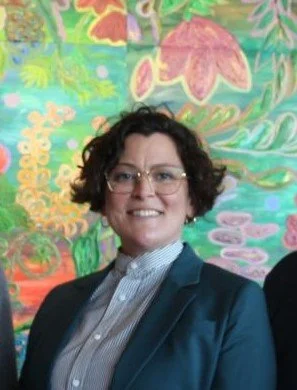
Alexis Boyle
For twenty years Alexis has led an active career as a teaching artist, working in fields of Art Education, Curation and Community Programming. Their work expands traditional ideas of what gallery and museum programs can be, attracting and retaining publics through meaningful collaboration and exchange. Partnering with culture workers to tell exhibition and collection stories makes audience learning participatory and fun! Former studies include a BFA from Concordia University and an interdisciplinary MFA from OCAD University supported by scholarships from SSHRC, OGS (declined), and FQRSC.
Cluster: Children's Museology
-

Simone Cambridge
Simone Cambridge is an MA candidate at the University of Massachusetts Amherst interested in transatlantic slavery, diasporic identity, postcolonialism, and race in visual culture and curatorial theory. She holds a BA from McGill University in Art History and International Development with a minor in Urban Systems Geography. Her research has been published by the McGill University Department of Art History and Communications, Journal of Black Canadian Studies, and Hyperallergic. Their article, “'It has just begun': Strawcraft in Bahamian Visual Culture”, was published in RACAR’s “salt. For the preservation of Black diasporic visual histories” in October 2022.
Cluster: Critical Race Museology
-

Keisha Cuffie
Keisha Cuffie (She/Her/Elle) is an author, curator, and educator currently pursuing a MA in Canadian Studies and a Graduate Diploma in Curatorial Studies at Carleton University. Her main research interest is decolonizing heritage spaces to create more inclusive environments while developing educational methods that reflect this perspective for children. She holds a BA in Political Science and Critical Race Studies. Keisha has contributed to the curation of the Black Canadian history exhibit at Upper Canada Village heritage museum and has consulted for various museums.
Cluster: Children's Museology
-
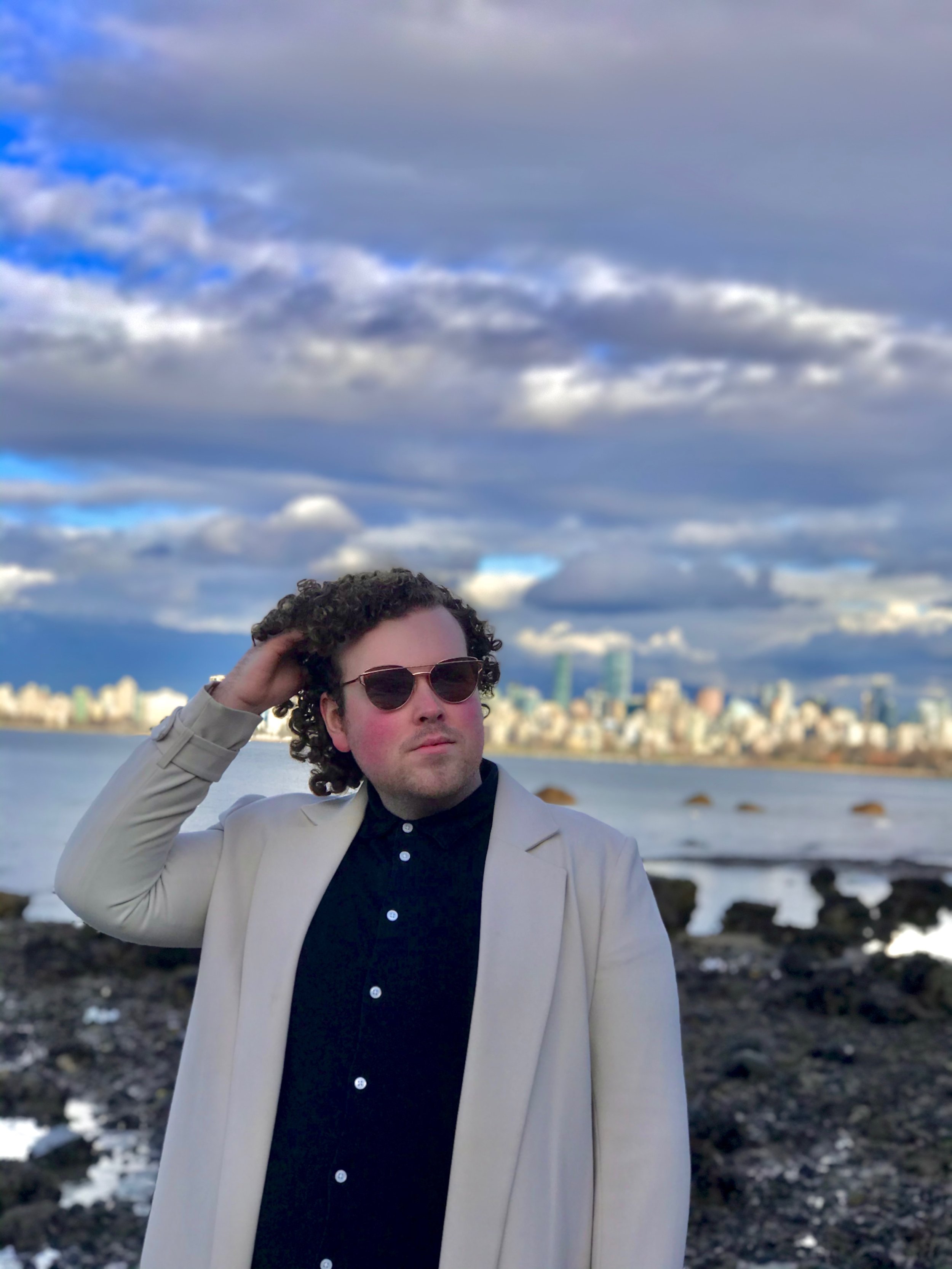
Adrian Deveau
Adrian Deveau is PhD candidate and sessional instructor in Art History at Concordia University and holds an MA in Art History and Theory from the University of British Columbia. Adrian has worked with arts-based organizations including Thinking Through the Museum: Museum Queeries, the Museum of Anthropology (Vancouver), Vancouver Biennale, and Modern Fuel Artist-Run Centre. Their writings have appeared in Network in Canadian History and Environment (NiCHE), Ampersand: An American Studies Journal, and Les Lieux des Savoirs Photographique: Les archives. Adrian's current dissertation project “Out of the Bedrooms, Into the Streets!" The Relational Force of a Queer Self in Canada, 1990-2020,” investigates the intersection of queer performance exhibitions and Canadian settler nationalist policy in the land now-called Canada.
Cluster: Museum Queeries
-

Kacper Dziekan
Kacper Dziekan is a Postdoctoral Fellow at Concordia University (Montreal) within the Thinking Through the Museum research network. Former International Projects include acting as Main Specialist at the European Solidarity Centre (Gdansk, Poland, 2013-2023) and an external expert/co-creator in a newly established museum/cultural centre - Port of Cultures (Mariupol, Ukraine - suspended since February 24th, 2022 after the Russian invasion on Ukraine). PhD at Adam Mickiewicz University in Poznan, Poland in January 2023. Landecker Democracy Fellow 2021/22, Fulbright Junior Fellow at UC Berkeley (the academic year 2019/20). PhD thesis dedicated to the Russian colonization of America and the cultural memory of Russian America in the USA. Academic interests: Russian history, colonialism, cultural memory, borderlands. BA and MA in History and BA in Russian, East European & Eurasian Studies from the Adam Mickiewicz University. Graduate of the European Academy of Diplomats, Moscow School of Civic Education, and a former student of Irkutsk State University, Russia. Worked as a Project Coordinator for several public institutions and NGOs. involved in educational, cultural, social, historical, and civic projects, especially regarding post- soviet countries and Central-Eastern Europe in general.
-

Amy Fung
Amy Fung is a SSHRC Postdoctoral Fellow (2024 - 2026) at Concordia University co-hosted by the Department of History and the School of Community and Public Affairs. Her SSHRC-funded PhD dissertation under historian Dr. Laura Madokoro (Carleton University) was a multidisciplinary study on the processes, refusals, and limitations of political recognition and official commemorations for past injustices and community grievances in a settler state. In addition to academic publishing, Fung has published widely as a Canadian art critic and cultural organizer for nearly twenty years and is the author of "Before I Was a Critic I Was a Human Being" (Book*hug Press and Artspeak, 2019).
-
Katrina Hermann
Katrina Hermann (she/her) is an MA student in History at UBC. She earned a BA with Joint Honours in History and German Studies from McGill University, during which she analyzed the development of Holocaust memory/memorials in the GDR. Through her work at the Montreal Holocaust Museum (MHM), she became interested in the Canadian context of Holocaust memory. This interest developed into the focus of her SSHRC-funded graduate research which interrogates the role of grassroots organizations in creating spaces of memory through a comparative case study of the MHM and Vancouver Holocaust Education Centre.
-

Adrienne Huard
Adrienne Huard (they/them) is an Anishinaabe Two-Spirit curator, writer, Sundancer, performer, and future Assistant Professor at the University of Manitoba in the Indigenous Studies department. They are a registered member of Couchiching First Nation in Treaty 3 territory, and currently reside in Winnipeg, Manitoba. Additionally, Huard is a Ph.D. candidate at the University of Manitoba, researching Two-Spirit, trans, and queer Indigenous critiques, aesthetics, and visual culture. They are a recipient of a Social Sciences and Humanities Research Council Doctoral award, and sit on the Board for 2Spirit Manitoba Inc.
Cluster: Museum Queeries + Unsettling and Indigenizing Museology
-

Ta’Ziyah Jarrett
Born and raised in Toronto, Ontario, Ta’Ziyah is a BCL/JD candidate at McGill University. Passionate about social justice and law, Ta’Ziyah gained valuable experience working as a member of the “Racialized Communities Strategy Team” at Legal Aid Ontario and acting as an Equity Commissioner for McGill’s Arts Undergraduate Society. In her free time, Ta’Ziyah indulges in many different mediums of storytelling.
Cluster: Critical Race Museology
-

Krista Collier-Jarvis
Dr. Krista Collier-Jarvis is a member of the Mi’kmaw First Nation and an Assistant Professor in the Department of English at Mount Saint Vincent University, which is located in Kjipuktuk (Halifax) in Mi’kma’ki, the unceded ancestral territory of the Mi'kmaq. She is an Affiliate with the NHTM cluster and is currently working on a pedagogical workshop about Indigenous-Jewish relations. As part of TTTM, she has aided in the development of “Difficult Histories of Kjipuktuk,” a resource for visitors; contributed to the reworking of the Indigenous exhibition at Wereldmusum in Leiden; and helped to organize “Trauma, Memory, and Material Culture: NMAI and USHMM in Dialogue." Her research focuses on Indigenous approaches, narratives of contagion, American and Indigenous literatures, popular culture, climate fiction, and critical museology.
Cluster: National Heritage and Traumatic Memory + Unsettling and Indigenizing Museology
-
Karina Roman Justo
Karina Roman Justo is an emerging writer, researcher and educator based in Tiohtià:ke (Montreal). She holds a BA in Visual and Critical Studies from OCAD University and a MA in Art History from Concordia University. She has published reviews in diverse publications like C Magazine and The Senses and Society. Karina was the education assistant at the Textile Museum of Canada in 2020-2021. She has curated exhibitions like “Making Spaces” at Sur Gallery (2020), and the “Mending the Museum” virtual exhibition (2023) as member of the curatorial duo with the same name. Karina’s research interests include decolonial theory, textiles, and collaborative art practices.
-

Emily Keenlyside
Emily is a settler practitioner-scholar living in Tiohtià:ke / Montreal. She has a PhD in Art Education from Concordia University, where her research examined art museum educators’ professional learning in times of political reckoning and social upheaval. Prior to her doctoral studies, Emily was an educator and trainer with the Montreal Museum of Fine Arts and co-coordinated education programming at Phi Foundation for Contemporary Art. Emily currently teaches Museum Studies at Mount Allison University, consults on museum education and training, and works as a civil servant supporting social science and humanities research.
-
Karine L’Ecuyer
Karine L’Ecuyer is a professor in the Département de Techniques de muséologie (Applied Museum Studies) at Collège Montmorency (CEGEP). A graduate of this unique three-year practical program herself, she has been teaching students who will become museum technicians since 2005. She holds a Bachelor's degree in Sociology with a concentration in Feminist Studies (UQÀM) and is currently pursuing a Master's degree through the Individualized Program at Concordia University. Her research project is titled “Reconsidering Teaching and Learning Applied Museum Studies in a Post-TRC Era: Challenges and Possibilities of Engaging in a Mindful Practice Deliberately Aimed Toward Reconciliation.”
-
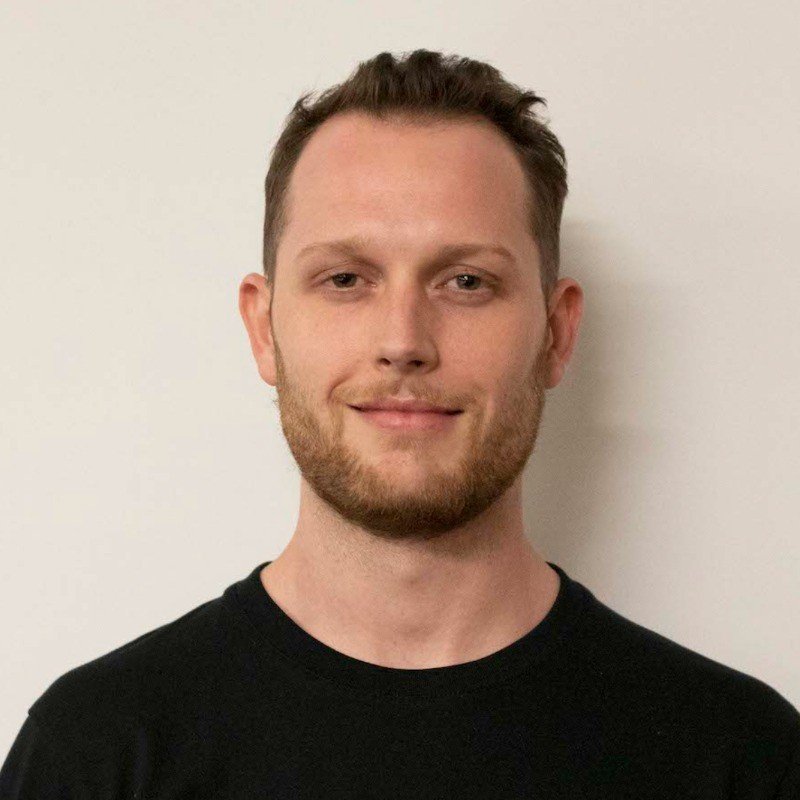
Wade Paul
I am Wade Paul, a member of the St. Mary’s First Nation Reserve in New Brunswick and a PhD candidate at Concordia University in the Department of History. During my Master’s research, I examined how the new science of epigenetics has a decolonizing potential that can be applied to Indigenous community-based research projects. In my PhD work, I am extending the same principles by working closely with communities and bridging Indigenous principles with various decolonizing efforts happening in Canada.
-

Hugo Rueda
Hugo Rueda is a Chilean scholar, Ph.D., and museum practitioner. Rooted in the tenets of cultural history, his work examines the origins, legacies, and resistances of colonial collecting and displaying practices in museums. Currently, Hugo is a postdoctoral fellow in the Social Studies of Medicine department at McGill University in Montreal, Canada. In this role, he leads a reinterpretation plan for the university's Medical Museum collections, aiming to provide new perspectives into their historical, cultural, and bioethical significance.
-

naveed L. salek nejad
naveed L. salek nejad is an artist-writer and independent scholar. They were a visiting fellow at the Centre for Research on Social Memory, Faculty of Sociology at the University of Warsaw in 2023, reviewing how coloniality is reproduced and sometimes also challenged in Polish museums. Their writing has appeared in publications in Germany (Querverlag Berlin), the US (Thick Press), and in self-published artist's books and zines. naveed studied Liberal Arts at University College Maastricht (2020) and holds an MA from Concordia University's Individualized Program (2024). They reside in Tiohtià:ke/ Montréal.
Cluster: National Heritage and Traumatic Memory -
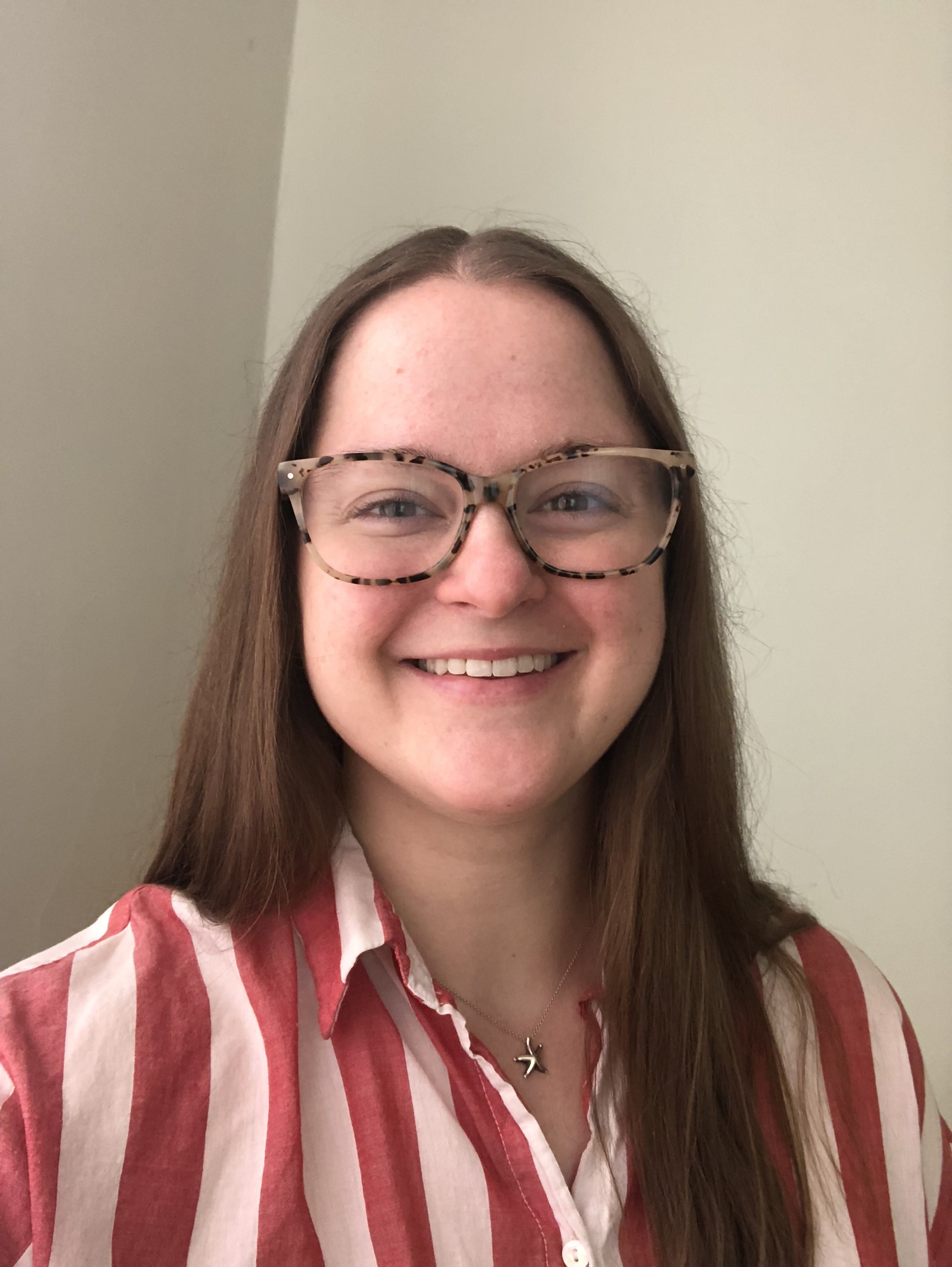
Althea Thompson
Althea Thompson is a PhD student in the Department of History at Concordia University and an avid knitter. Specialising in Russian history, Althea’s PhD dissertation questions how and if North American museums – particularly in the United States – are decolonising their Russian/East European collections. She will be examining objects belonging to the Romanovs, the former Russian imperial family, as her case study.
-

Candide Uyanze
Candide Uyanze is a multimedia, multidisciplinary, and multi-hyphenate doer of things. She's been described as a producer, digital artist, video editor, photographer, designer, researcher, teacher, daughter, sister, and friend. Her practice explores diasporic storytelling, immersive web experiences, open source tools, accessible media production, African languages, and online networks and communities. Candide holds an MDes in Digital Futures from OCAD University and an Honours BA in Communication and Digital Humanities from the University of Ottawa.
Cluster: Critical Race Museology
-
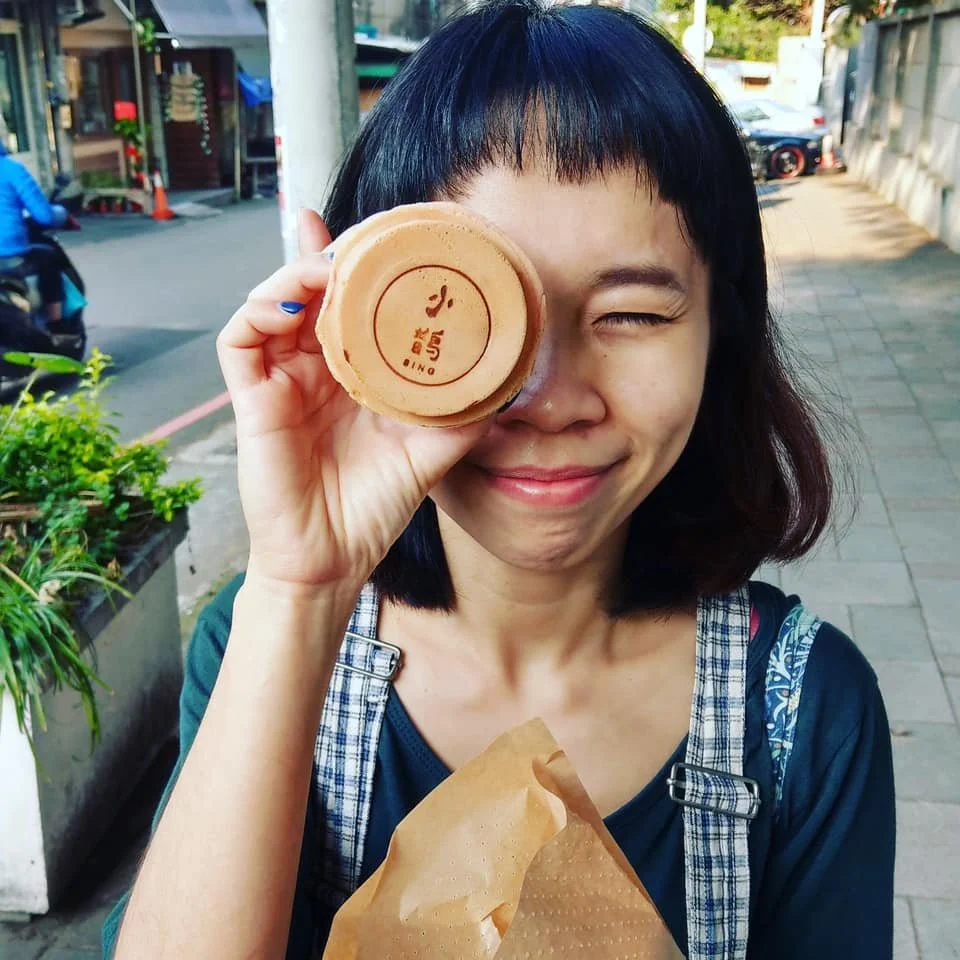
Chun-Hui Wang
Chun-Hui Wang (Hui) is a museum practitioner and child-friendly advocate based in Taiwan. She has a first-hand appreciation of the importance of museums as supportive environments for children, gained from many years working in different museums. Hui has always been interested in fostering new forms of collaboration between museum professionals and kids, a passion that led her to initiate the “Co-create with Children” project in Taiwan in 2022. The main goal of the project is to decrease the prevalence of adult-dominated museum practices by actively involving children as co-creators in developing child-centered services at museums.
Cluster: Children's Museology
Former Research Assistants, Affiliates, & Staff
-
Thomas Boeckner
Thomas Boeckner is a student in the Cultural Studies MA program at the University of Winnipeg and a research assistant for Dr. Angela Failler. They completed their undergraduate degree at OCAD University with a major in Visual and Critical Studies. Being a visually impaired, queer artist, they are interested in how disability studies and queerness intersect in the art world. Thomas comes from a small Northwestern Ontario city and recognizes the potential and importance of the rural and peripheries in a thriving network of art and culture beyond urban centres.
Former Role: Research Assistant Cluster: Museum Queeries
-
Sarah Brooks
Sarah Brooks is an artist and craftsperson based in Punamu’kwati’jk (Dartmouth, NS), and is from the Mi’kmaq community of Sɨkɨpne'katik First Nation, on Mi’kma’ki (Nova Scotia). She graduated from NSCAD University in 2019, receiving her BFA with a major in Textiles and a minor in Art History. Since 2019, Sarah has been employed through CMM (Confederacy of Mainland Mi’kmaq) and St. Mary’s University, contributing to the project titled T’an Weji-sqalia’tiek: Mi’kmaw Place Names. Sarah is currently an MFA candidate (2022) at NSCAD University in Kjipuktuk (Halifax, NS).
Former Role: Research Assistant Cluster: Unsettling and Indigenizing Museology
-
Mika Castro
Mika Castro was a Senior Research Assistant for Museum Queeries. They hold a BA in Psychology and Women and Gender studies from the University of Winnipeg, and, more recently, an MA in Women’s and Gender Studies from the University of Toronto. Their research examines the ways Filipino migrants are being represented within official institutions of memory, such as in museums and government archives. Their research thinks through alternative ways of remembering queer Filipino stories that allow for agency and open up queer possibilities of life-making.
Former Role: Senior Research Assistant Cluster: Museum Queeries
-
Jason Chalmers
Jason Chalmers, PhD, is a settler, transdisciplinarian, and quilting enthusiast. Jason is a SSHRC postdoctoral fellow at Concordia University where they are hosted by the Department of History and the School of Community & Public Affairs. Jason’s research explores how genocide commemoration interacts with settler colonialism, with particular focus on museums, monuments, and other sites of public memory. Their work has appeared in such journals as American Indian Quarterly, Socialist Studies, and Canadian Jewish Studies.
Former Role: Affiliate Cluster: National Heritage and Traumatic Memory
-
Malaika Eyoh
Malaika Eyoh is a writer and cultural worker. They graduated with an Honors Degree in African Studies and Political Science from the University of Toronto in 2021. Malaika is the current Content Marketing Coordinator at the Nia Centre for the Arts. As a researcher, Malaika worked as a summer fellow with the Jackman Institute for the Humanities SiR programme in 2020, and has contributed to research projects with the Caribbean Studies Department and Daniels Faculty of Architecture at the University of Toronto. Away from work, Malaika writes short fiction occasionally and is interested in exploring film making.
Former Role: Research Assistant Cluster: Critical Race Museology
-
Agnieszka Frasunkiewicz
Agnieszka (Aggie) Frasunkiewicz is a writer and researcher based in Tiohtià:ke (Montréal). She holds a BA in Visual and Critical Studies from OCAD University, where she led the Journal of Visual and Critical Studies. Her research explores feminism and female artists working in the Polish People’s Republic, and how that era’s distinct, homegrown feminism nurtures the country’s contemporary feminist movements. She is currently an MA candidate in Art History at Concordia University.
Former Role: Research Assistant Cluster: National Heritage and Traumatic Memory
-
Niamh Griffin
Niamh Griffin (they/them) is a Winnipeg-based writer and researcher. Niamh holds an Honours Bachelor of Digital Communications from Humber College, and they are a current MA student in the Cultural Studies program at the University of Winnipeg. Their research interests include technopolitics, ideological violence, decolonial theory, and cultural hegemony.
Former Role: Research Assistant Cluster: Museum Queeries
-
Sav Jonsa
Sav Jonsa is an autistic, Transgender, Two-Spirit Metis person with familial roots in St. Norbert. Sav is in the process of obtaining a Bachelor of Arts in Theatre and Film, with a minor in English, at the University of Winnipeg. Their aspiration is to create children's entertainment using a mix of live action, puppetry, and stop-motion techniques in hopes of developing programming that fosters children's imaginations and provides a feeling of safety, joy, and possibility. Sav is passionate about archives, rediscovering lost media, historical queer coding and these interest's connection to the relationship between nostalgia and childhood trauma.
Former Role: Research Assistant Cluster: Museum Queeries
-
Sabrina Mark
Sabrina Mark works as the Research Coordinator for the Centre for Research in Cultural Studies (CRiCS) at the University of Winnipeg. She obtained her PhD from the Department of English, Theatre, Film & Media at the University of Manitoba. Her dissertation focused on mobility and the imagined roles of girls and women in nation-building in popular early twentieth-century girls’ novels. Her other research interests include children’s literature, critical race theory, textual depictions of dress, and the fiction of L.M. Montgomery.
Former Role: Research Coordinator Cluster: Museum Queeries
-
Grace McMorris
Grace McMorris is an MA student in Concordia’s History Department, and completed her BA (Honours) at the University of Winnipeg. Grace’s thesis research focuses on national identity construction and the commodification of Inuit material culture by the Canadian state. She has previously assisted with a Parks Canada project in P.E.I and provided outdoor education for Alberta Parks and a wildlife non-profit in Manitoba. She is interested in the role that museums, heritage sites, and parks have in creating and maintaining national myths and identities.
Former Role: Research Assistant Cluster: National Heritage and Traumatic Memory
-
Shanna Ossé
Since graduating in Communications and Digital Humanities at the University of Ottawa in 2018, Shanna’s studies has pivoted from social media analysis to museum accessibility and decolonizing the museum space with the repatriation of looted artefacts during colonization. In 2018, working in conjunction with the Ingenium - Canada’s Museum of Science and Innovation and the University of Ottawa, she participated in the creation of the online exhibit The Digital Touch: Bringing Tangibility To Museums And Medicine, exploring digital tools and their uses to bridge the gap between touch accessibility, museum protocols and medicine. Her project, A Hole in a Heart, focuses on 3D imaging being transformed into 3D printed materials to aid in the surgical process of patching the Atrial Septal Defect in infants.
Former Role: Communications Coordinator
-
Madeline Rae
Rae (she/her) is a Master of Clinical Social Work student at Dalhousie University. She is a settler born on Treaty One land (Winnipeg, Manitoba), and is now studying in K'jipuktuk, Mi'kma'ki. Rae holds a BFA honours and a BA in Psychology. She is a sex columnist, performance artist, and future sex therapist. Rae's work explores the therapeutic potentials of BDSM and the ritualistic performative space, sexual trauma, the effects of systemic oppression on sexual freedom/expression, and sensual reclaimation of bodily autonomy. She has worked in sexual/reproductive healthcare across Canada, as well as in front-line community support work. Rae is honoured to be working with Krista Collier-Jarvis.
Former Role: Research Assistant Cluster: Unsettling and Indigenizing Museology
-
Zoe L. Raymond
Zoe L. Raymond is a Montreal writer and collagist. She holds a Master of Arts in Creative Writing from Concordia University. Her writing has been featured in Veils, Halos, and Shackles: International Poetry on the Oppression and Empowerment of Women; The Blasted Tree; Corpus; Spectral Haunts; and Anti-Languorous. Zoe is currently pursuing a PhD in English at Dalhousie University, with a research focus in exploring collage as a virtual container for poetry rather than a purely visual art form. This is also the focus of her current art practice.
Former Role: Communications Assistant. Cluster: Unsettling and Indigenizing Museology
-
Nicole Ritchie
Nicole Ritchie earned her PhD in Social and Political Thought in 2021 at York University. Previously, she completed a Master of Museum Studies in collaboration with Sexual Diversity Studies at the University of Toronto. Ritchie’s work is published in a special issue (2017) of Somatechnics: Bodies – Technology – Power on “Sexuality in Canada,” and in a special issue (2022) of Psychoanalysis, Culture, & Society on “Trauma and Repair in the Museum.” Her current research focuses on how human anxieties impact contemporary storytelling about ecological crises and the implications for care-taking and repair, especially as exhibited in or facilitated by museums. She has worked as a Research Associate with the TTTM cluster Museum Queeries since 2017.
Former Role: Research Assistant Cluster: Museum Queeries
-
Jordyn Sheldon
Jordyn Sheldon is the Research Coordinator at the Centre for Research in Cultural Studies at U Winnipeg with experience in project coordination, research development, facilitation and curriculum and interpretive program development. She holds an MA in Cultural Studies and Critical Theory from McMaster University. Her research interests include engaged pedagogy, abolition feminism, health humanities, settler colonial studies and transformative justice. Jordyn continues to teach approaches to social change, harm reduction and transformative justice in community, at non-profits, museums and in Urban and Inner-City Studies and Women's and Gender Studies at the University of Winnipeg.
Former Role: Research Coordinator Cluster: Museum Queeries
-
Chaoyang Zhang
Chaoyang Zhang is currently pursuing a B.A. in Arts Management at Communication University of China. He participated in Bi-City Youth Cultural Leadership Programme organized by Hong Kong Palace Museum and interned at the West Kowloon Cultural District Authority in Hong Kong. Chaoyang co-founded "Brickin" a youth council in Beijing, which advocates for public participation in art through placemaking, community building, and gamification.
Former Role: Research Assistant
Cluster: Children’s Museology -
Yazhe Zhang
Yazhe Zhang is a Bachelor's student majoring in History at Northeast Normal University in China. With an interdisciplinary background in both history and pedagogy, she focuses on topics such as children's museum education, history education, and public archaeology. She has participated in some archaeological excavation projects and conducted research on children's education in museums across China, designing various feasible curricula. Her recent research explores critical children's museology and the empowerment of children.
Former Role: Research Assistant
Cluster: Children’s Museology
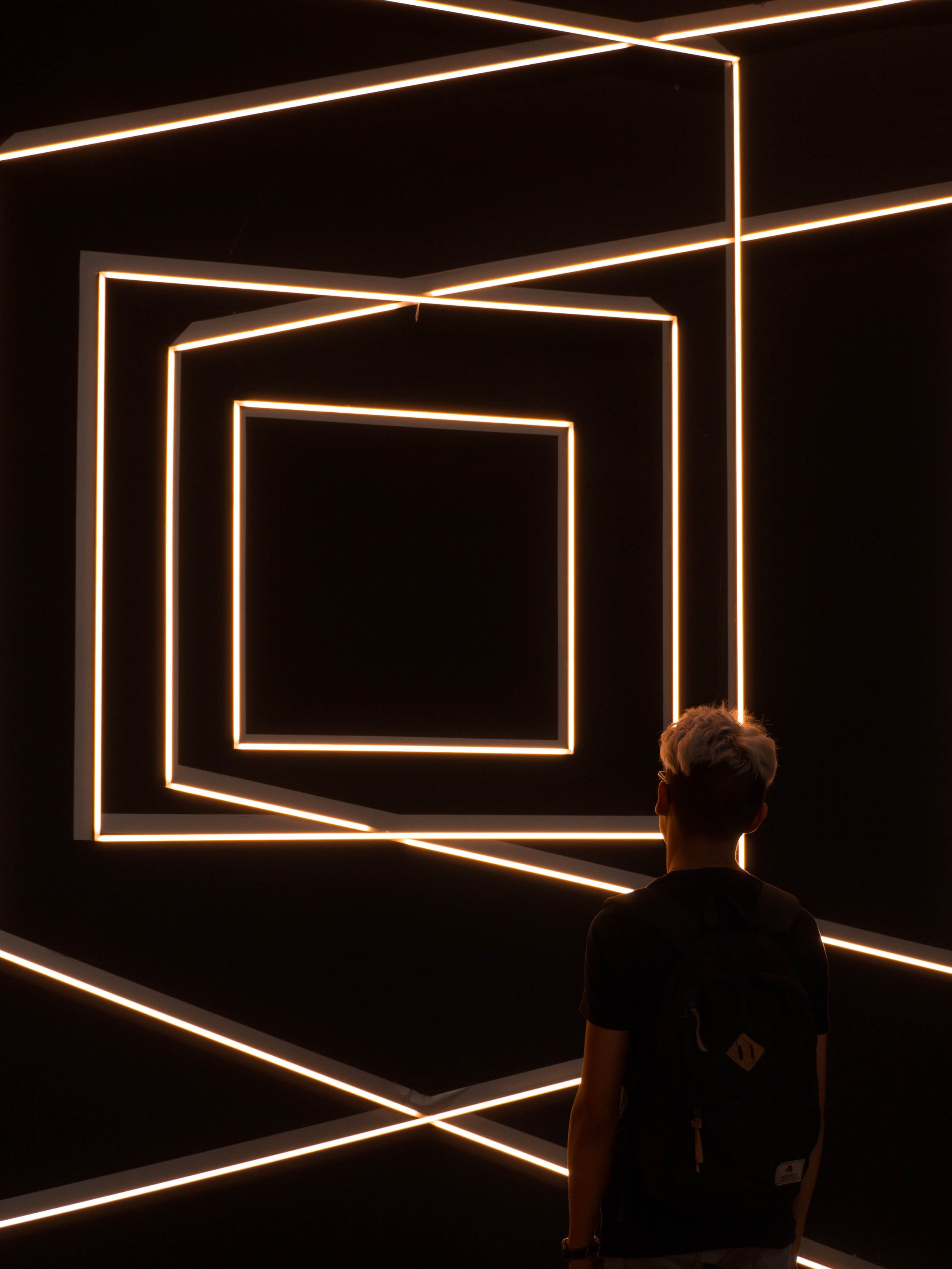
partner organizations
20 partner organizations have joined TTTM. From establishment museums to radical arts festivals, they bring collections, exhibition spaces, institutional expertise, and broad audiences, while the project offers them resources such as funding, time, and permission for creative experimentation and risk-taking.




























